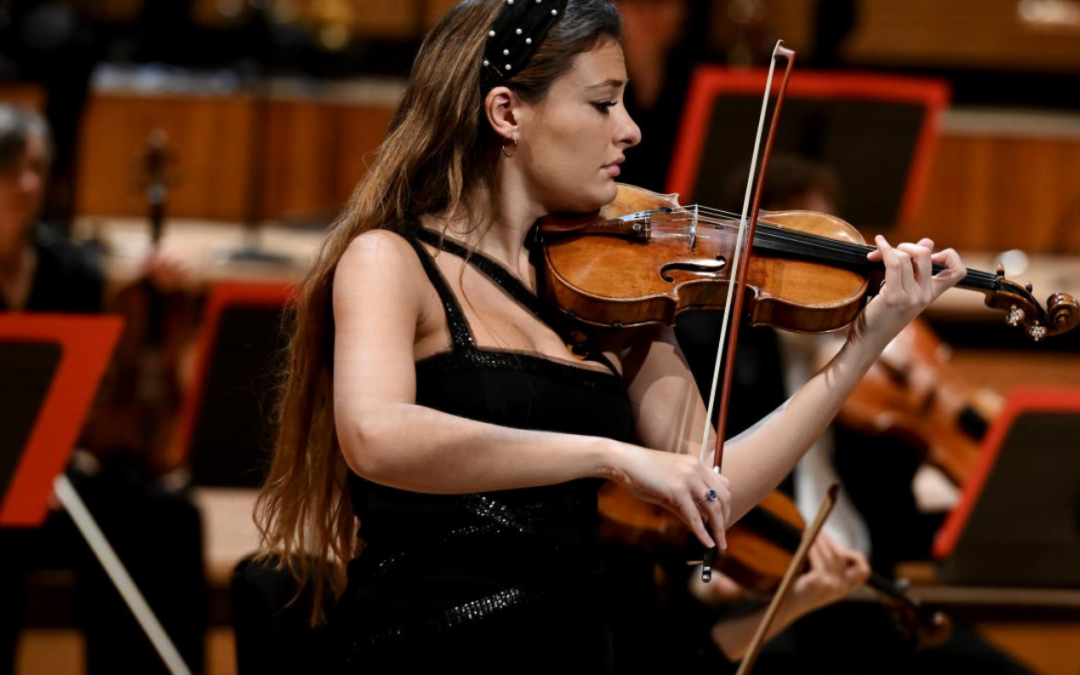THE TIMES — October 2, 2023 — After a summer break spent on the small job of directing the Edinburgh International Festival, Nicola Benedetti is flexing her violin muscles with a vengeance in this concert season. She’s resident with the Philharmonia, a role that, in practice, breaks down into three showpieces. Still to come are Wynton Marsalis’s Violin Concerto, which Benedetti has championed relentlessly since giving its premiere in 2015, and Bruch’s Scottish Fantasy. Here, though, she was bidding to put her mark on a repertoire staple, Brahms’s Violin
Concerto, a peak she scaled with flair and authority.
There’s dark soul as well as showbiz fizz lurking in Brahms’s concerto, and Benedetti mined both of those strains, vibrantly accompanied by the orchestra under Cristian Măcelaru. The long first movement was full of gutsy attack, and sometimes startling changes of colour and texture, but there was a melancholy streak under the surface, in the shiveringly dark double-stopped chords and Benedetti’s classy, sighing portamenti. The adagio was songlike, impulsive, and she chomped hungrily into the gypsy-inspired finale.
and the audience went appropriately wild afterwards
If I have a criticism it’s that Benedetti’s sheer restlessness as an interpreter — her desire to animate every phrase — can sometimes overwhelm the line of the music. But occasionally unbalanced Brahms is much better than boring Brahms. This was a performance that felt like a real event, and the audience went appropriately wild afterwards.
Măcelaru was making his Philharmonia debut here. The Romanian’s stock has been rising in Europe — he conducts the WDR Sinfonieorchester in Cologne and the Orchestre National de France in Paris — and he made a definite splash. True, he didn’t have much to grab on to into the concert opener, a dirge-like miniature from Nico Muhly, One Line, Two Shapes, which unhelpfully brought us back to the pandemic era, but in Rachmaninov’s Third Symphony — another nod to the year-long anniversary celebrations of the composer — he brought rhythmic precision and plenty of swagger.
The Third, a late work by a composer some accused of dwindling inspiration, has been held up in recent years as proto-modernist. Măcelaru clearly has no truck with that idea. It sounded instead more like a summary of — or farewell to — the grand tradition of 19thcentury Russia. Upholstered in the plush sound of the Philharmonia strings, and speckled with pungent contributions from the winds, this was Rach at his ritziest.
photo: Camilla Greenwell
Neil Fisher
Monday October 02 2023,
The Times ➭

